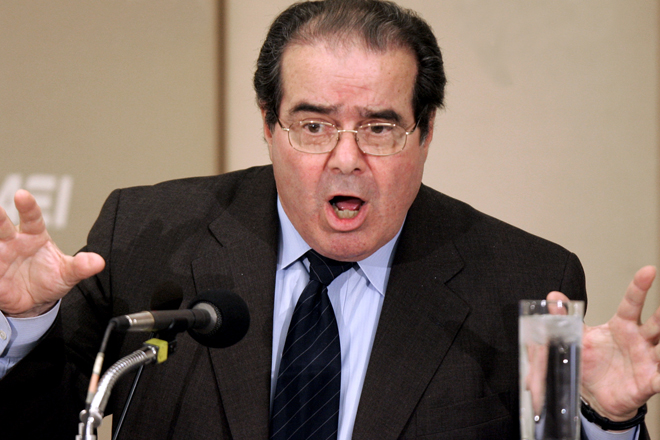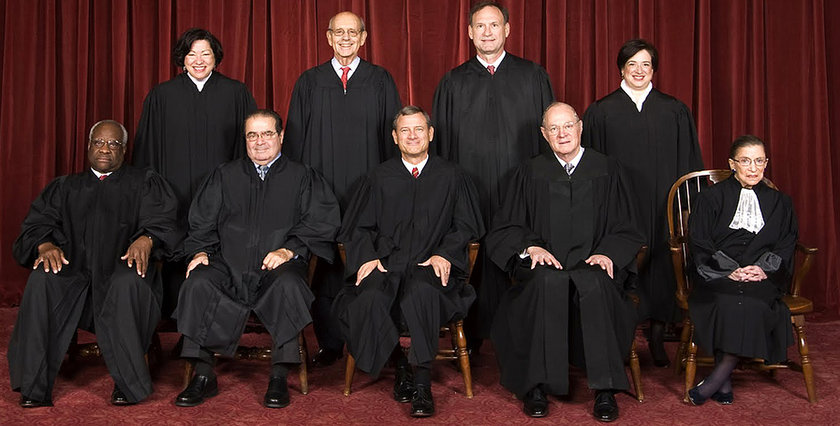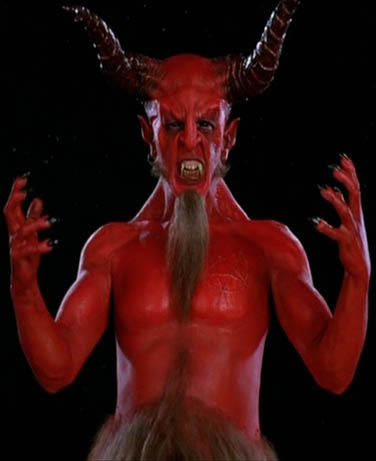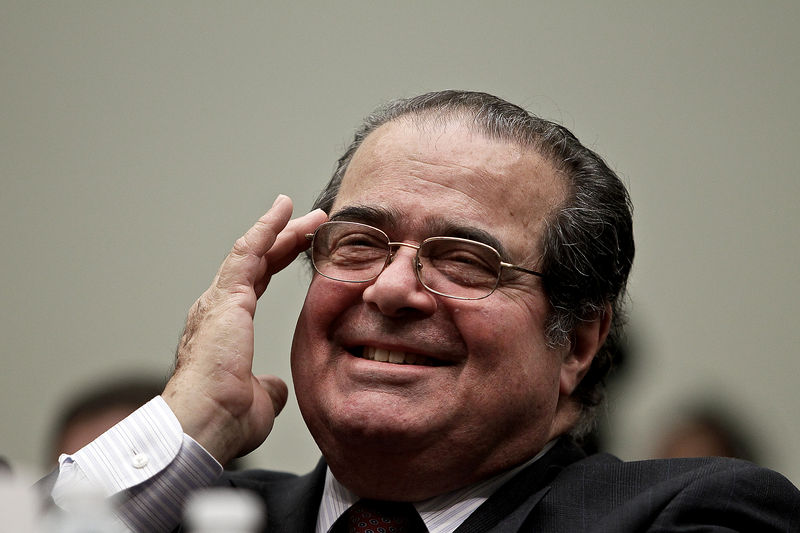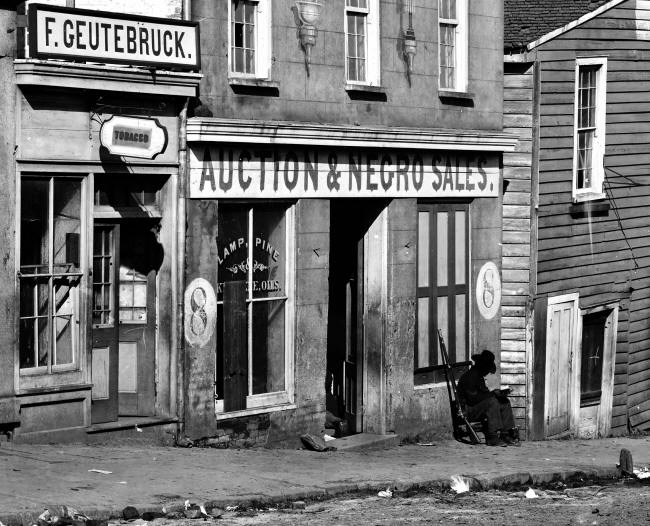In the days after Antonin Scalia’s death, I revisited my puzzlement over the warm friendship he enjoyed with his liberal counterpart Ruth Bader Ginsburg, a staunch Civil Rights supporter. All camaraderie requires some compartmentalizing, and the ability to accept those who are different is the bedrock of all societies–especially a polyglot one like ours–but embracing someone so bigoted seems a bridge too far to me.
Scalia, of course, was in a rare position to impact the lives of millions of his fellow Americans in profound ways. The LGBT community, for instance, was not better for that. In his writings, Scalia was clear that he wanted to make America straight again. It wasn’t merely a justice putting his own religious beliefs before the Constitution, not since Scalia thought we should encourage orgies to “ease social tension.” I’m pretty sure that runs afoul of certain tenets of Catholicism. No, Scalia’s work to restrain the rights of some Americans had to do with personal prejudice and political power, not piety.
From Jeffrey Toobin at the New Yorker:
Antonin Scalia, who died this month, after nearly three decades on the Supreme Court, devoted his professional life to making the United States a less fair, less tolerant, and less admirable democracy. Fortunately, he mostly failed. Belligerent with his colleagues, dismissive of his critics, nostalgic for a world where outsiders knew their place and stayed there, Scalia represents a perfect model for everything that President Obama should avoid in a successor. The great Justices of the Supreme Court have always looked forward; their words both anticipated and helped shape the nation that the United States was becoming. Chief Justice John Marshall read the new Constitution to allow for a vibrant and progressive federal government. Louis Brandeis understood the need for that government to regulate an industrializing economy. Earl Warren saw that segregation was poison in the modern world. Scalia, in contrast, looked backward.
His revulsion toward homosexuality, a touchstone of his world view, appeared straight out of his sheltered, nineteen-forties boyhood. When, in 2003, the Court ruled that gay people could no longer be thrown in prison for having consensual sex, Scalia dissented, and wrote, “Today’s opinion is the product of a Court, which is the product of a law-profession culture, that has largely signed on to the so-called homosexual agenda, by which I mean the agenda promoted by some homosexual activists directed at eliminating the moral opprobrium that has traditionally attached to homosexual conduct.” He went on, “Many Americans do not want persons who openly engage in homosexual conduct as partners in their business, as scoutmasters for their children, as teachers in their children’s schools, or as boarders in their home. They view this as protecting themselves and their families from a life style that they believe to be immoral and destructive.”
But it was in his jurisprudence that Scalia most self-consciously looked to the past.•

